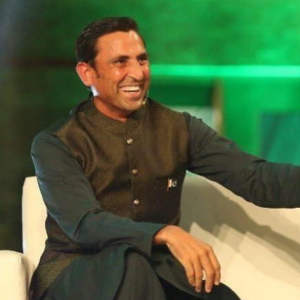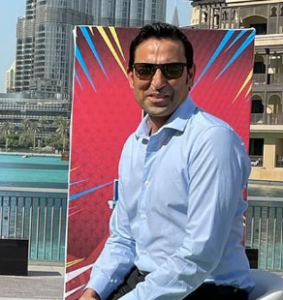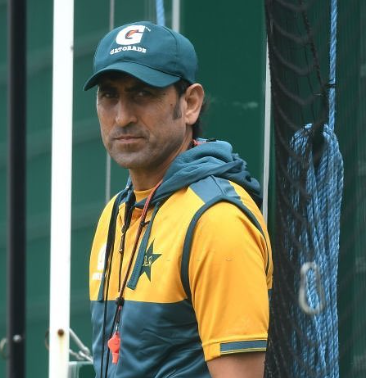Younis Khan’s call for Jay Shah to facilitate India’s visit to Pakistan and vice versa is a reminder of the power of sports to transcend political boundaries
While the challenges are significant, the potential benefits of resuming bilateral cricket between India and Pakistan are immense.
A successful revival of cricketing ties could serve as a beacon of hope for improved relations between the two nations and reaffirm the role of cricket as a unifying force.
As the 2025 ICC Champions Trophy approaches, the decisions made by the ICC, BCCI, and PCB will be closely watched by cricket fans and analysts alike.
Whether India and Pakistan can set aside their differences and come together on the cricket field remains to be seen, but the possibility offers a glimmer of hope for the future of cricket and diplomacy in South Asia.
The team needs to put the defeat behind them and approach the next game with a fresh mindset. Younis Khan’s emphasis on morale-boosting is key here. The players must be reminded of their strengths and past successes, particularly in home conditions.
The coaching staff and team management have a crucial role to play in this process. They need to work on the psychological aspects of the game, ensuring that the players are mentally prepared to take on the challenge.
This includes building a positive team environment, where players support each other and are encouraged to play with confidence.

Also Read: Nick Hockley’s Five-Year Journey as Cricket Australia CEO Comes to an End
Table of Contents
Younis Khan: India-Pakistan Cricket Relations
Cricket has always been more than just a sport in South Asia, particularly in India and Pakistan, where it is deeply embedded in the cultural fabric.1
The cricketing rivalry between the two nations is one of the most intense and storied in the sport’s history. Yet, for years, political tensions have cast a shadow over the cricketing ties between India and Pakistan.
Former Pakistan captain Younis Khan’s recent comments urging the newly-appointed International Cricket Council (ICC) chairman, Jay Shah, to facilitate India’s visit to Pakistan and vice versa, have reignited the debate on whether cricket can serve as a bridge between the two nations.
Happy Independence Day – my beloved Pakistan 🇵🇰 pic.twitter.com/hmblqqLr9O
— Younus Khan (@YounusK75) August 14, 2024
Historical Context
The cricket rivalry between India and Pakistan is unparalleled in its intensity. Matches between the two teams are not just sporting events but are charged with emotion, nationalism, and pride.
Historically, the two teams have engaged in numerous memorable encounters, often with high stakes in ICC tournaments like the World Cup, the Champions Trophy, and the Asia Cup. However, bilateral series between the two nations have become rare over the years due to political and diplomatic tensions.
The last time India and Pakistan played a bilateral series was in 2012-13 when Pakistan toured India for a short series comprising three One Day Internationals (ODIs) and two Twenty20 Internationals (T20Is). Prior to that, India’s last tour to Pakistan was in 2005-06.
Since then, both nations have only met in ICC events or Asia Cup matches, leaving fans yearning for more frequent encounters.
The Role of the ICC and Jay Shah’s Appointment
The ICC, as the global governing body of cricket, plays a crucial role in promoting and regulating the game worldwide.
The appointment of Jay Shah, who also serves as the secretary of the Board of Control for Cricket in India (BCCI), as the ICC chairman is significant in this context. Shah’s influence within both the BCCI and the ICC places him in a unique position to potentially facilitate improved cricketing ties between India and Pakistan.
Younis Khan, in his remarks, emphasized the need for Jay Shah to exhibit sportsmanship and take proactive steps to enhance cricketing relations between the two nations.
His call for Shah to “show the sportsman spirit” and encourage India to tour Pakistan and vice versa is a reflection of the hope that cricket can transcend political barriers and serve as a means of diplomacy.

Younis Khan: The 2025 ICC Champions Trophy
One of the major events on the cricketing calendar is the ICC Champions Trophy, scheduled to be held in Pakistan in 2025.2
However, there have been concerns regarding India’s participation in the tournament if it is held in Pakistan. The security situation and political relations between the two nations are likely to be significant factors in determining whether India will make the trip.
The 2025 Champions Trophy presents a crucial opportunity for Jay Shah to influence the direction of India-Pakistan cricket relations. If India does participate in the tournament in Pakistan, it could pave the way for more bilateral series and potentially a resumption of regular cricketing ties.
On the other hand, if India decides against touring Pakistan, it could further strain the relationship and reduce the chances of future bilateral series.
The Impact of Cricket on Diplomacy
Cricket has often been described as a tool of diplomacy, particularly in the context of India and Pakistan. The term “cricket diplomacy” has been used to describe the way in which cricket matches have been used as a means to ease tensions and foster dialogue between the two countries.
One of the most notable instances of cricket diplomacy was during the 2004 India-Pakistan series when the Indian cricket team toured Pakistan for a full-fledged series after a gap of 15 years.
The series was widely regarded as a success both on and off the field, with fans from both countries crossing the border to support their teams.
Cricket, as a unifying force, has the potential to bring people together, even in times of political discord. A successful India-Pakistan series, whether in Pakistan or India, could serve as a catalyst for improved relations between the two nations. It could also send a positive message to the rest of the world about the power of sports in bridging divides.

Younis Khan: Challenges of Resuming Bilateral Cricket
Despite the potential benefits of resuming bilateral cricket between India and Pakistan, there are several challenges that need to be addressed.3
Security concerns are paramount, particularly in the context of recent events that have raised questions about the safety of touring teams in Pakistan.
Additionally, the political climate between the two nations remains tense, with cross-border conflicts and diplomatic stand-offs often overshadowing sporting events.
The BCCI, as one of the most powerful cricket boards in the world, also plays a significant role in determining the future of India-Pakistan cricket.
The BCCI’s stance on touring Pakistan has been cautious, largely due to security concerns and the potential political backlash. Any decision to resume bilateral cricket will require careful consideration of these factors, along with the willingness of both governments to support such initiatives.

The Fans’ Perspective: A Longing for Revival
For cricket fans in both India and Pakistan, the resumption of bilateral cricket is a matter of great anticipation and hope.
The passion and fervor that accompany India-Pakistan matches are unparalleled, and the absence of regular bilateral series has left a void in the hearts of cricket enthusiasts.
Social media platforms are often abuzz with discussions and debates about the possibility of India and Pakistan playing against each other more frequently. Fans from both sides of the border have expressed their desire to see their teams compete in full-fledged series, not just in ICC events.
The revival of India-Pakistan cricketing ties would not only satisfy the fans’ longing but also contribute to the global appeal of the sport.
The Path Forward: Building Bridges Through Cricket
The road to resuming bilateral cricket between India and Pakistan is fraught with challenges, but it is not impossible.
It requires a concerted effort from the ICC, the BCCI, the Pakistan Cricket Board (PCB), and the governments of both nations. Jay Shah, in his dual role as the BCCI secretary and ICC chairman, is in a unique position to influence the future of India-Pakistan cricket.
One possible approach could be to start with small steps, such as organizing a neutral venue series or exhibition matches, to build confidence and trust between the two cricket boards. If successful, these matches could lead to more regular bilateral series in the future.
Additionally, involving former cricketers and diplomats in dialogue initiatives could help bridge the gap and create a conducive environment for resuming cricketing ties.

Also Read: Shan Masood (Pakistan Cricketer): Who Is He? Bio, Wiki, Age, Career, Wife and More
Younis Khan: Need for Pakistan’s Cricketers to Boost Their Morale
The recent Test match between Pakistan and Bangladesh in Rawalpindi sent shockwaves through the cricketing community. Pakistan, a team with a long-standing dominance over Bangladesh in Test cricket, suffered a humiliating 10-wicket defeat.
This was especially shocking considering Pakistan’s strong start, with a formidable first-innings total of 448/6 declared. However, Bangladesh responded with a powerful 565, taking control of the game.
What followed was a dramatic collapse from Pakistan, who were bowled out for a mere 146 on the fifth day, setting Bangladesh a paltry target of 30 runs, which they chased down effortlessly without losing a wicket.
This loss was not just another defeat; it was a significant blow to the morale of the Pakistani team and its supporters.
The team, known for its resilience and strong performances at home, found itself struggling against a side they had historically dominated. The defeat raised serious questions about the team’s mental toughness and ability to perform under pressure.
Younis Khan: In London
Younis Khan shared some glimpes with his beloved son from his recent London tour, on his official instagram account.
View this post on Instagram
Younis Khan’s Perspective: The Importance of Morale in Cricket
Former Pakistan captain Younis Khan, a legend of the game, was quick to address the issue, emphasizing the dire need for the players to boost their morale.
Younis, who has seen the highs and lows of Pakistan cricket, understands better than most the psychological impact such a defeat can have on a team. His comments were a reminder that cricket is not just a physical game but a mental one as well.
“There is always pressure to play cricket in home conditions,” Younis remarked. “What is the benefit to the players if they cannot absorb the pressure? There is a dire need for the players to boost their morale.”
His words reflect the importance of mental strength in cricket, particularly when playing at home, where expectations are high, and the pressure can be overwhelming.
Younis highlighted that Pakistan has a history of clinching victories even during times when international cricket was absent from the country. This, according to him, is a testament to the team’s ability to overcome adversity.
However, he acknowledged that the current situation demands a renewed focus on boosting the players’ confidence and morale.
Also Read: Sir Geoffrey Boycott (England Cricket Legend): Rehospitalized with Pneumonia, Health Update




